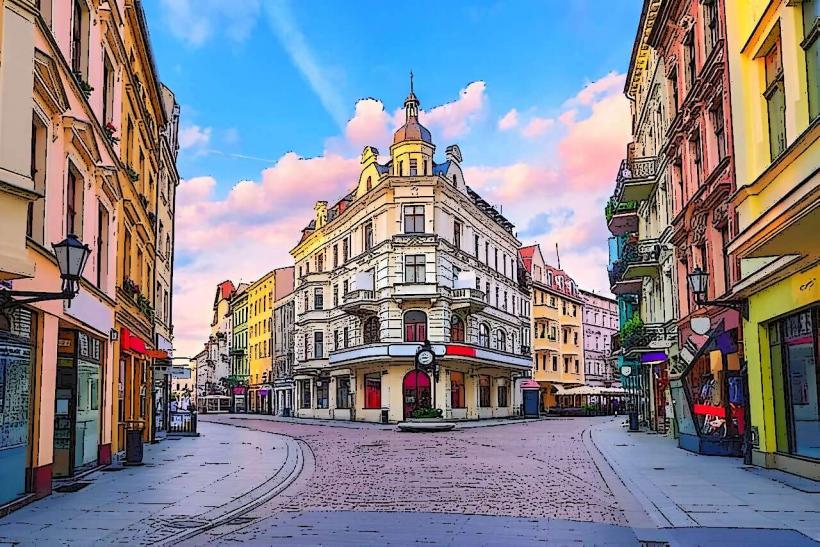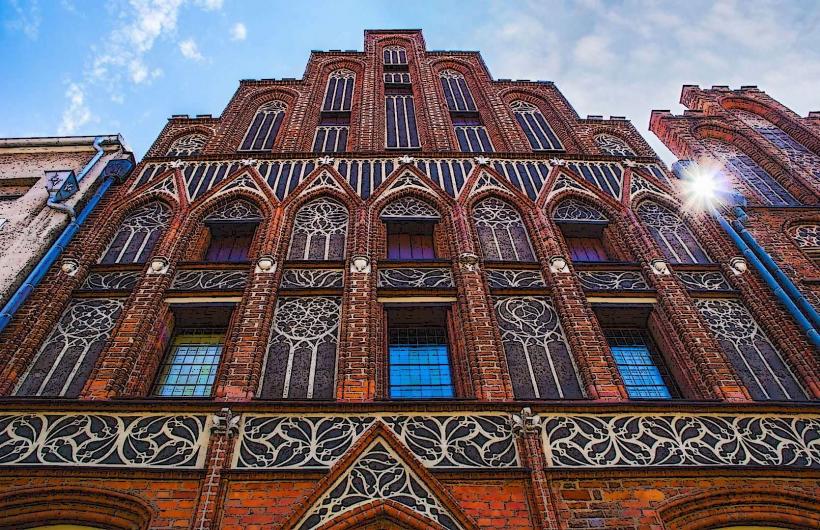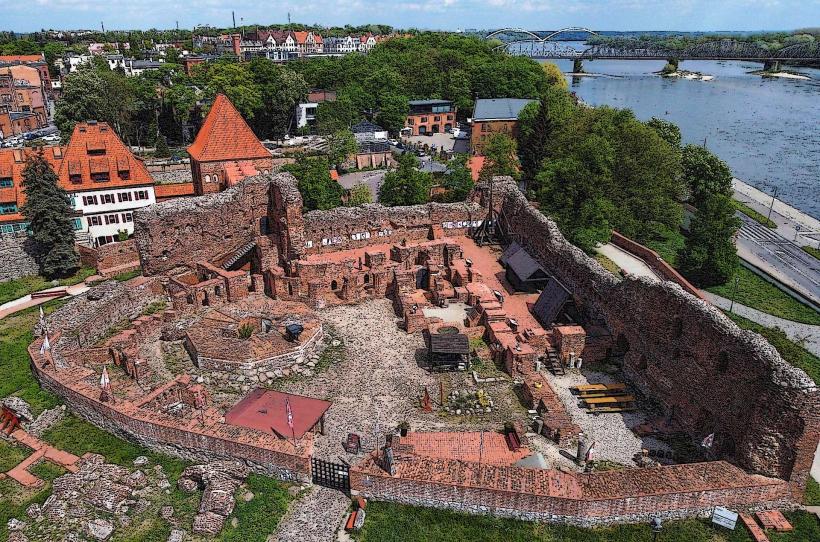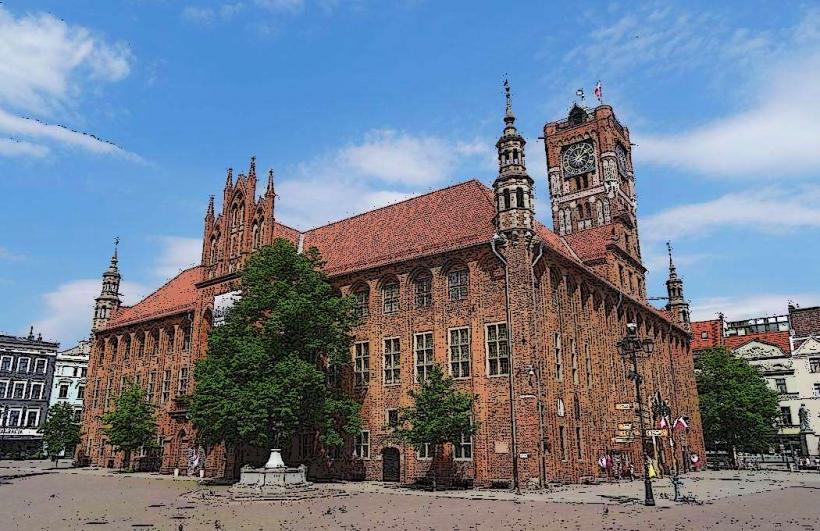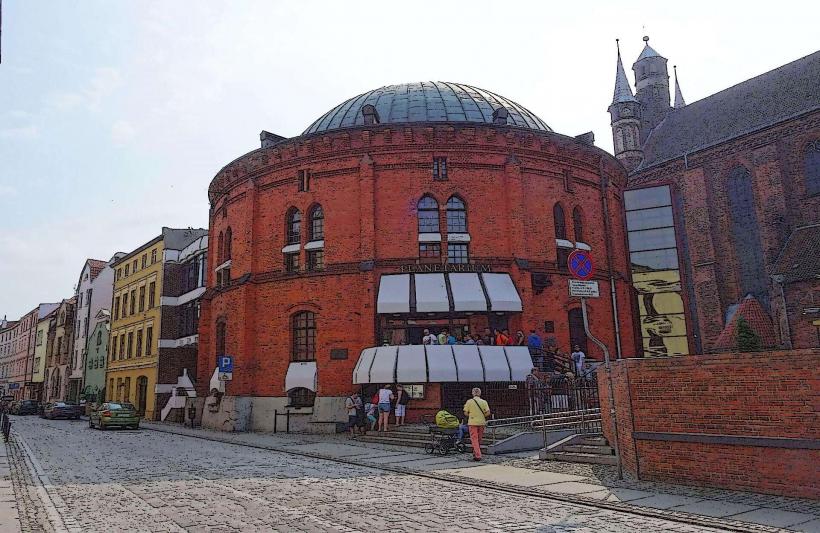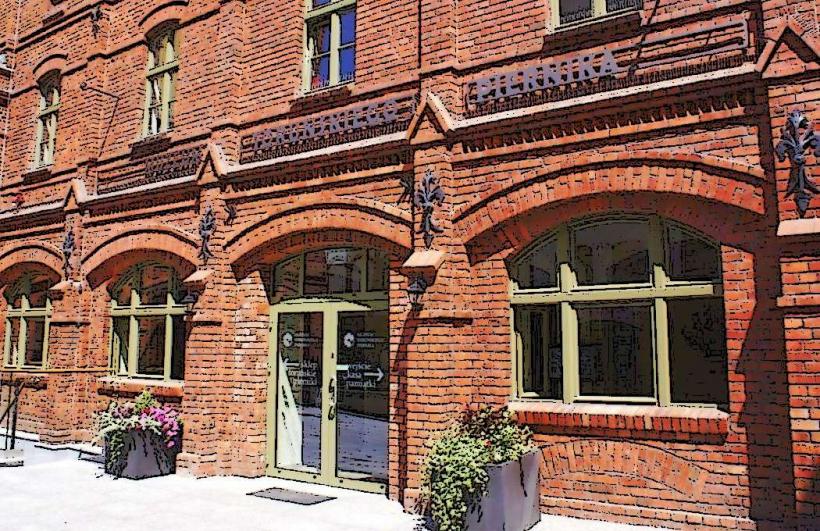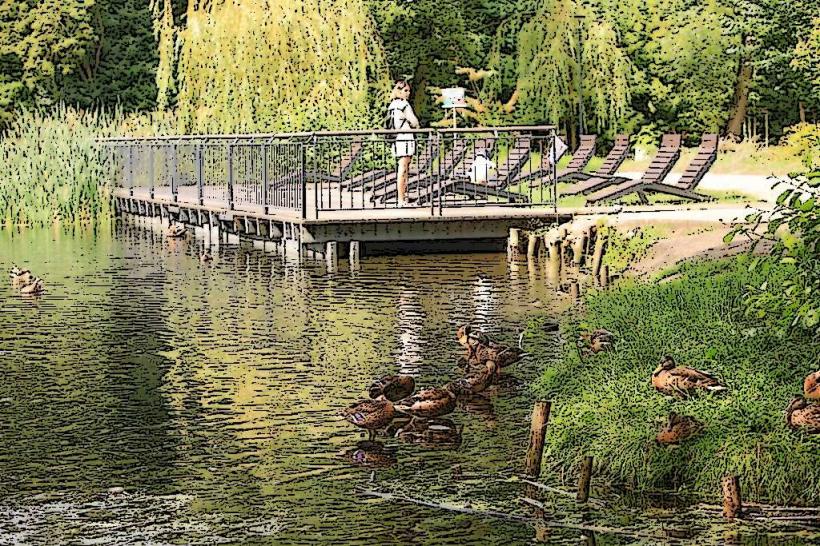Information
City: TorunCountry: Poland
Continent: Europe
Torun, Poland, Europe
Toruń functions as a primary cultural and academic center of the Kuyavian-Pomeranian Voivodeship and a significant node for space sciences, confectionery logistics, and heritage tourism. Situated on the Vistula River, it is defined by its status as one of the few Polish cities to escape structural destruction during WWII, its 13th-century brick Gothic urban core (UNESCO World Heritage), and its identity as the birthplace of Nicolaus Copernicus.
Historical Timeline
Toruń was established by the Teutonic Knights in 1233. The primary era of governance was defined by its membership in the Hanseatic League, during which it became one of the wealthiest trading hubs in the Kingdom of Poland. The primary event shaping its modern identity was the 1945 establishment of the Nicolaus Copernicus University (UMK), which transitioned the city from an industrial-military fortress into an intellectual center. Historically, it served as a critical river port for the grain trade between the Polish interior and Gdańsk.
Demographics & Population
The population is approximately 195,000 (2026 estimate). The demographic profile is heavily influenced by a student population of approximately 30,000. The workforce is specialized in chemical manufacturing (Toruń-Pacific, TZMO), high-tech electronics, and specialized conservation of historical monuments.
Urban Layout & Key Districts
The city is organized into a dual-center medieval core and surrounding 19th-century fortifications.
Old Town (Stare Miasto): A specialized medieval district containing the Town Hall, the Copernicus House, and the highest concentration of brick Gothic architecture.
New Town (Nowe Miasto): Established in 1264 as a separate entity; it is centered on the New Town Market and was historically inhabited by craftsmen.
Bydgoskie Przedmieście: A specialized residential district known for its eclectic and Art Nouveau (Secession) architecture and extensive city parks.
Rubinkowo: A specialized eastern high-density residential district, characterized by large-scale late-20th-century urban planning.
Top City Landmarks
Old Town Hall: A specialized monumental Gothic building; it is one of the largest and most intact administrative buildings of medieval Europe.
Cathedral of SS. Johns: A specialized 14th-century brick Gothic hall church featuring the "Tuba Dei," the second-largest medieval bell in Poland.
Nicolaus Copernicus House: A specialized museum located in a pair of Late Gothic burgher houses, believed to be the birthplace of the astronomer.
Teutonic Castle Ruins: A specialized horseshoe-shaped fortification destroyed by the townspeople in 1454 as a revolt against the Order.
Leaning Tower of Toruń: A specialized medieval defense tower that tilted due to unstable loess soil; its vertical deviation is approximately 1.5 meters.
Living Museum of Gingerbread: A specialized interactive facility dedicated to the 600-year history of Toruń gingerbread (Pierniki).
Transportation Network
Toruń is a secondary node on the A1 North-South motorway.
Railway Hub: The city has three primary stations; Toruń Główny is the main hub, located on the south bank of the Vistula and connected to the center by a specialized bridge.
Public Transit: A specialized network of trams and buses. In 2026, the city operates an expanded tram line to the northern districts and utilizes a bi-modal fleet of electric and hybrid buses.
Vistula River Bridges: The city is connected by three major structural crossings, including the historic Piłsudski Bridge and the modern Elżbieta Zawacka Bridge.
Safety & "Red Zones"
The general safety level is very high. Toruń is statistically secure. There are no "red zones." The historic center is pedestrian-friendly and safe at all hours. Standard urban awareness is recommended in parts of the Rubinkowo and Podgórz districts after midnight.
Digital & Financial Infrastructure
The city is a leader in Radio Astronomy and Geographical Information Systems (GIS). Internet speeds average 500–1000 Mbps. 5G is universal. In 2026, the city utilizes a specialized digital traffic management system to preserve the air quality of the UNESCO-protected core.
Climate & Air Quality
Toruń has a temperate continental climate. Average temperatures range from -2°C in January to 25°C in July. Air quality is generally high, though the city basin is subject to specialized monitoring during the winter heating season.
Culture & Social Norms
Social norms are characterized by academic formality and a strong local pride in the city's "Gothic" brand. Tipping (10%) is standard. The primary cultural event is the Skyway Festival (August), an international light and astronomy event, and the Camerimage film festival (held here periodically).
Local Cost Index (2026 Estimates)
1 Espresso: 11–15 PLN
1 Pint of Local Beer: 14–20 PLN
1 Standard Lunch: 35–60 PLN
Traditional Gingerbread (Decorative): 15–40 PLN
Nearby Day Trips
Ciechocinek: 25 mins away; a specialized health resort known for its massive 19th-century wooden graduation towers (salt-evaporation structures).
Bydgoszcz: 45 mins away; a specialized administrative city known for its "Venice of Bydgoszcz" riverfront and industrial heritage.
Golub-Dobrzyń: 40 mins away; a specialized Gothic-Renaissance castle known for international knight tournaments.
Facts & Legends
Toruń is the site where the first Peace of Toruń was signed in 1411. Legend states that the Leaning Tower was built by a Teutonic Knight as a punishment for falling in love; the tower's tilt represents his deviant behavior. A verified fact is that the city's gingerbread recipe was historically a guarded secret, more valuable than gold in trade. Historically, the city remained an autonomous "Royal City" with its own mint and laws for centuries under the Polish Crown.

